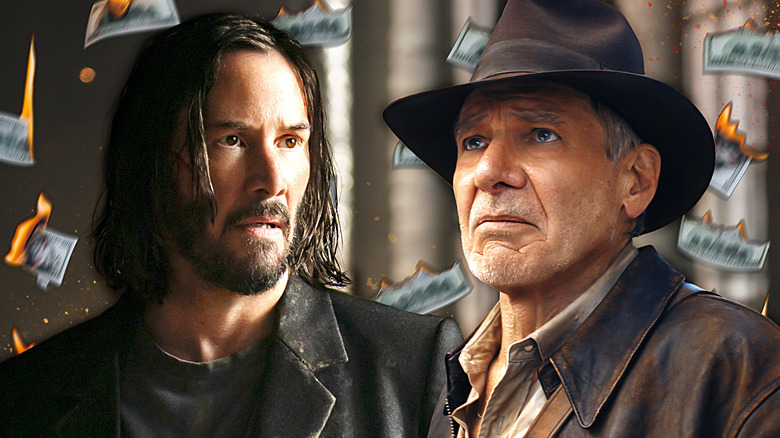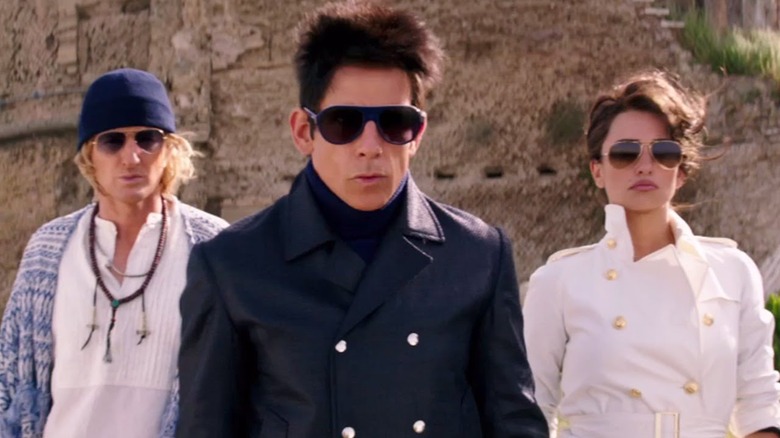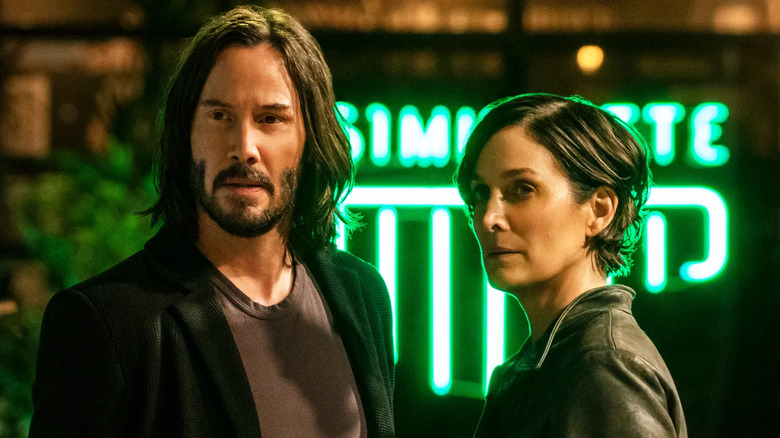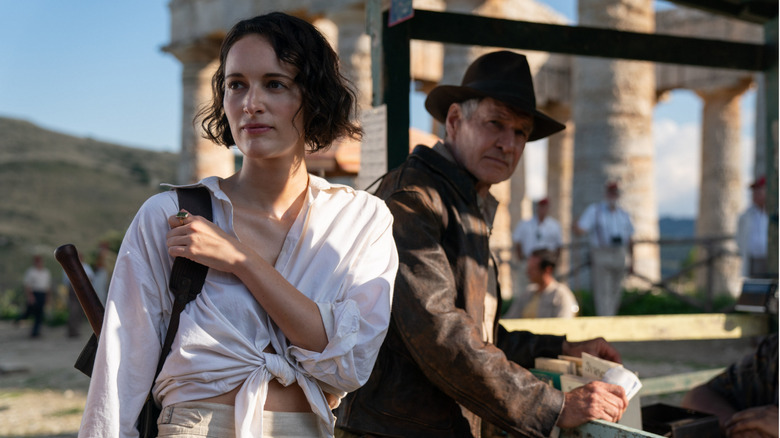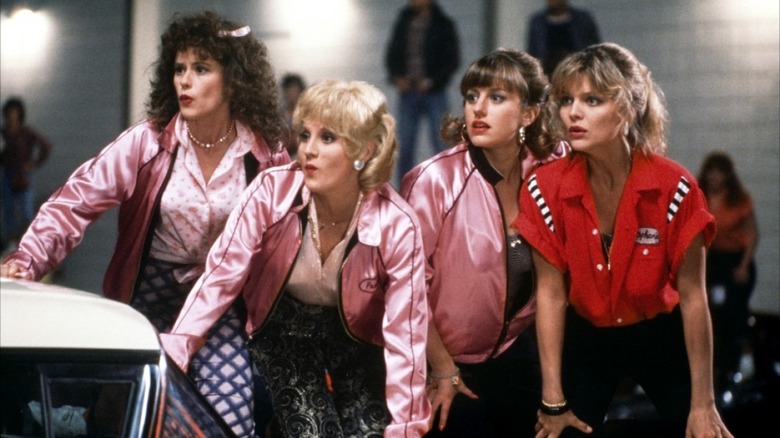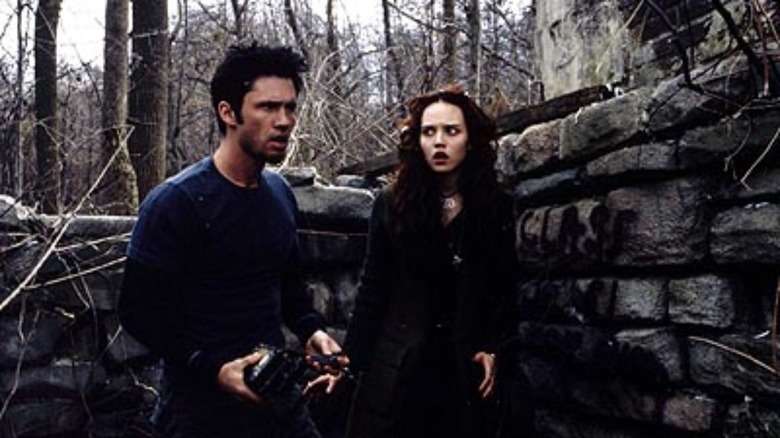Sequels To Huge Movies That Flopped Hard At The Box Office
Not every movie needs a sequel. Over the years, you would think that Hollywood might have learned a couple of lessons about making follow-ups to films that became huge hits; luckily, some creators have actively declined the opportunity to return to the same project with the number "2" in the title, like Kristen Wiig (we probably won't ever see a second "Bridesmaids" movie, and that feels like it's for the best). With rare exceptions — "The Godfather Part II," "Mad Max: Fury Road," and the "John Wick" franchise come to mind — a sequel to a super-popular movie usually produces diminishing returns, especially when it comes to reviews and word of mouth.
With that said, some unpopular sequels, like 2017's "Transformers: The Last Knight" and 2022's "Jurassic World: Dominion," still made a ton of money at the box office (the former made around $600 million worldwide, while the critically reviled "Jurassic World" cracked a billion dollars).
The movies on this list, though? They hold a special distinction: nobody liked them very much, and they bombed so badly at the box office that it was actually notable. From a comedy sequel made years after the original to an attempt to revive a major franchise, these movies tried to recapture lightning in a bottle ... and failed. Here are five sequels to enormously popular movies that flopped at the box office.
Zoolander 2
When "Zoolander" came out in 2001, nobody could deny that Ben Stiller had yet another major hit on his hands. One of several films that Stiller made around that time with colleagues like his wife Christine Taylor and frequent collaborator Owen Wilson, this razor-sharp, wildly silly satire of the fashion industry was directed by Stiller himself, who also plays the lead role of vapid yet sweet male model Derek Zoolander.
Fifteen years after striking gold with "Zoolander," which won over audiences and performed respectably at the box office, Stiller and Wilson decided to team up to play Derek and Hansel again.
To put it lightly, "Zoolander 2" was an utter failure. With a budget estimated to hover around $55 million, the movie only made $56 million at the box office, which certainly isn't great. The reviews didn't help, either. With a bleak 22% rating on Rotten Tomatoes and a critical consensus that reads, "['Zoolander 2'] has more celebrity cameos than laughs – and its meager handful of memorable gags outnumbers the few worthwhile ideas discernible in its scattershot rehash of a script," "Zoolander 2" was a huge misfire, and it certainly didn't help that co-star Benedict Cumberbatch faced backlash for playing a transgender character. Years after its release, Stiller said the movie's failure stung, which makes sense ... but perhaps he should have thought long and hard about whether or not the world really needed a "Zoolander" sequel.
Matrix: Resurrections
The original "Matrix" trilogy concluded back in 2003 with "The Matrix Revolutions," but in 2021, director Lana Wachowski, who created the first three films with her sister and collaborator Lilly Wachowski, returned with a fourth installment in the series. With original stars Keanu Reeves and Carrie-Anne Moss back on board (Laurence Fishburne wasn't a part of the project, but a younger version of his character Morpheus was played by Yahya Abdul-Mateen II), "The Matrix Resurrections" revisits Reeves' Neo, who's back in the simulation of the Matrix and living as Thomas Anderson once again. When he crosses paths with Tiffany (Moss), who has shaky memories of her own past, the two piece together their stories and soon realize that they're stuck in a simulation once again, fighting against forces like Smith (Jonathan Groff, taking over for Hugo Weaving) and The Analyst (Neil Patrick Harris) along the way.
Critically, "The Matrix Resurrections" didn't fare too poorly. With a 63% rating on Rotten Tomatoes, critics agreed that the movie was a solid look back at the Wachowskis' universe, saying, "If it lacks the original's bracingly original craft, 'The Matrix Resurrections' revisits the world of the franchise with wit, a timely perspective, and heart."
Unfortunately for Wachowski and her returning actors, the box office didn't represent that, and the movie only earned a total of $159 million against a budget of $160 million. This wasn't entirely the movie's fault, though; thanks to the timing of its release and the COVID-19 pandemic, it ended up streaming on Max at the same time it made its theatrical debut. Village Roadshow, which helped finance the film, ended up suing Warner Bros. over this troubled release.
Indiana Jones and the Dial of Destiny
At this point, a trend might be emerging: returning to make a sequel as part of a franchise that's been dormant from quite some time might not be the best idea. When he made 2023's "Indiana Jones and the Dial of Destiny," director James Mangold — who penned the movie alongside Jez Butterworth, John-Henry Butterworth, and David Koepp — picked up the series fifteen years after the most recent sequel, the much-maligned "Indiana Jones and the Crystal Skull." And based on both the reviews and box office returns, it feels like Mangold perhaps should have left well enough alone.
Set in 1969, the movie pairs original star Harrison Ford with franchise newbie Phoebe Waller-Bridge (best known for her award-winning series "Fleabag"), who shows up as Indy's goddaughter Helena as the two try to find a historical relic that could go back and change the outcome of World War II.
The reviews weren't terrible so much as largely middling — but as far as the box office was concerned, "Indiana Jones and the Dial of Destiny" was an utter disaster for Disney's bottom line. Even though the movie made $384 million worldwide, that still marked a huge loss for Disney when you consider that it was one of the most expensive movies ever made with a budget of just under $295 million (though even larger numbers were reported, marking serious inconsistencies regarding the movie's enormous price tag). In the end, it was one of the House of Mouse's biggest financial flops ever ... and it marked the end of the "Indiana Jones" franchise, according to a press release in the spring of 2023.
Grease 2
It's never a great sign when most of the people involved with a hit movie decline to return for the sequel, whether it's the cast, writer, or director — and that's what happened with 1982's "Grease 2."
Directed by Patricia Birch — who took over for Randal Kleiser, the first movie's director — "Grease 2" makes a dubious return to Rydell High, but without any of the familiar faces or creative voices found in the original film. Gone are Olivia Newton-John, Stockard Channing, John Travolta, and the other talented people who helped the first movie become a massive critical and commercial hit; in "Grease 2," audiences were introduced to new central couple Stephanie Zinone (Michelle Pfeiffer) and Michael Carrington (Maxwell Caufield). The movie follows basically the same beats as the first, but switches up the couple's dynamic. This time, Michael is the Rydell newcomer (he's actually canonically the cousin of Newton-John's Sandy) who romances the popular Stephanie, leader of the Pink Ladies.
Despite its pretty low budget, "Grease 2" flopped hard at the box office ... which probably spoke to not only its overall quality and the fact that it felt unnecessary, but also that it had to face off against Steven Spielberg's "E.T." In the end, the movie made just $15 million, which is all the more disappointing when you consider that the original raked in a whopping $396 million.
Book of Shadows: Blair Witch 2
"The Blair Witch Project" is, without question, one of the most influential and financially successful horror films ever made — and it also set a new standard for the found footage genre that's been repeated again and again in the years since it was originally released in 1999. Sadly, the same can't be said for the sequel made just one year later, "Book of Shadows: Blair Witch 2."
When the first film became an enormous cultural zeitgeist — and also made just under $250 million on a budget of just a few hundred thousand dollars — its production company, Artisan Entertainment, wanted to get a sequel out as expediently as possible, but the original creative team wasn't on board. As a result, Artisan went ahead and hired director Joe Berlinger to direct the sequel, which takes a much more meta approach than the original. Within the universe of "Book of Shadows," the characters are obsessed with "The Blair Witch Project" and decide to investigate the movie's purportedly "real" events for themselves.
Sure, "Book of Shadows" made $47 million, which doesn't sound like it bombed, but compared to the success of the first movie, it's definitely a downgrade. Fans didn't much like the movie, either, so it's safe to say that this was a textbook example of a studio getting greedy and trying to recapture a moment that had already passed by.
